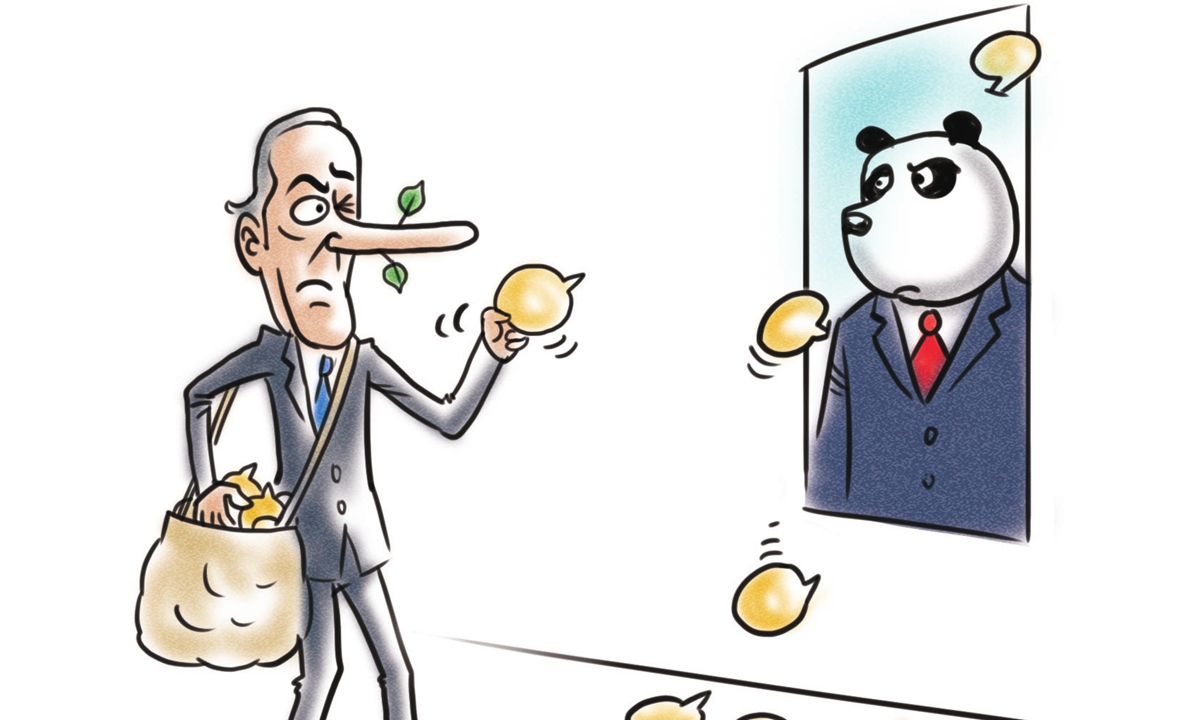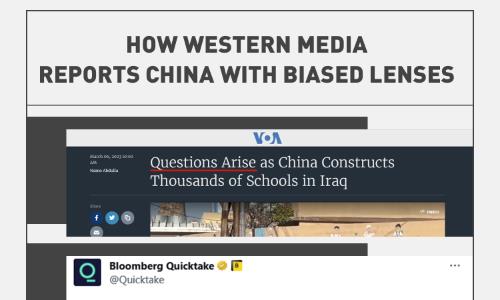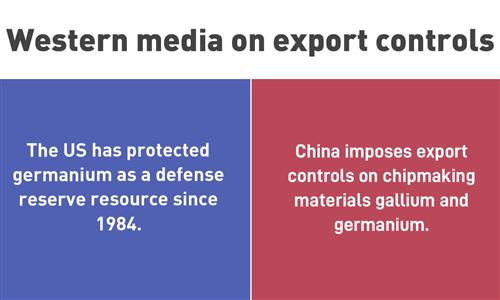
Illustration: Chen Xia/GT
On August 7, an Italian academic published an op-ed article in the English edition of the Global Times focusing on Italy's possible decision not to renew its Belt and Road deal with China. As an Italian, the writer sincerely hoped to speak some heartfelt words from the perspective of Italy's national interest. However, he is also well aware of the risks he may face in speaking the truth about the "Belt and Road" cooperation in the current Western public opinion atmosphere, so he demanded to express his ideas, which is clearly different from those of certain Italian elite, under a pseudonym.
Whether it is in Chinese media or Western media, publishing articles under a pseudonym or using anonymous sources for news reporting is considered a common practice within the industry. Reuters, in its "Standards & Values," states that it "will use unnamed sources where necessary when they provide information of market or public interest that is not available on the record." The New York Times also explains in an article entitled "Why does The New York Times use anonymous sources?" that "we recognize that the use of anonymous sources is sometimes crucial to our journalistic mission… Sources sometimes risk their careers, their freedom and even their lives by talking to us."
The Italian scholar told the Global Times that "in light of the intimidations and smearing recently suffered by Professor Alessandro Orsini and former Ambassador Elena Basile for having expressed views that understood and defended Italy's national interests differently from Italy's ruling elite, I prefer to remain anonymous, and I will try to establish my authenticity with the Italian press in due time." The Global Times understood his concerns and ultimately agreed to publish the opinion article under a pseudonym. Many Chinese scholars who are following this matter also believe that the Global Times simply followed the international practices and respected the author's personal willingness. The relevant operations are impeccable from any perspective.
The hype from some Western media later precisely confirmed the author's concerns. Italian media outlet Le Formiche claimed that it couldn't find any personal information of the author online, slandering the person as a "fictional character" created to "spread fake news." The media outlet also quoted the author's views regarding the renewal of the Belt and Road agreement without any refutation or comment. Additionally, the Chinese version of RFI also published an article which only focused on the Italian scholar's identity. None of these media outlets presented different perspectives or arguments regarding the article's views, but instead maliciously focused on the fact that they couldn't find the author's information on the internet. This inevitably raises doubts: Are these media outlets putting in so much effort to "identify this person" in order to "cyberbully" him?
It seems that the author requested the use of a pseudonym precisely because of a very deep understanding of the Italian and Western media. As a media outlet, the Global Times prefers to publish under a real name. However, when the author insisted on using a pseudonym due to the current domestic public opinion environment in Italy not allowing for rational voices, we respected the author's request. The results now have proven that the author's concerns are valid.
As a matter of fact, Western media often use anonymous sources or pseudonyms themselves. On September 5, 2018, The New York Times published an anonymous op-ed entitled "I Am Part of the Resistance Inside the Trump Administration." In 2017, CNN quoted the views of the anti-China columnist "Kong Tsung-gan" in its report on the Hong Kong situation. Commentaries on Hong Kong signed by "Kong Tsung-gan" with provocative anti-China and chaos-inciting remarks had repeatedly quoted by Western media. It was later disclosed by the independent American media outlet The Grayzone that Kong Tsung-gan was actually the pseudonym of Brian Patrick Kern, an American who opposes China and hopes to destabilize Hong Kong. In addition, media outlets such as the Wall Street Journal have repeatedly used "anonymous sources" to fabricate unfounded accusations against China regarding the COVID-19 pandemic and the Russia-Ukraine issue.
Are pseudonyms and anonymity only the "patent" of Western media? When they use them, they are taken as a necessary means to protect the sources and convey important viewpoints, but when Chinese media do the same, it becomes a way of creating fake news - what kind of hooligan double standard is this? Are Western media so accustomed to using such methods to fabricate news that they project the same logic onto Chinese media?
In fact, their intentions are very clear - to seize every opportunity to discredit Chinese media and intimidate foreign individuals who write for Chinese media, thereby causing a "chilling effect" to make them afraid to speak objectively and fairly on China-related issues.
"Be aware that the attacks the article is receiving are not motivated by the anonymity. That is just a pretext. The attacks are motivated by the article being inconvenient for the pro-American faction that dominates Italian politics and society and for the Americans themselves, who want to jeopardize the Italian-Chinese economic cooperation at no costs for themselves," the writer told the Global Times after seeing the reactions of some Italian and Western media to the article.
This "pseudonym incident" involving the Italian author allows us to see more clearly that when it comes to attacking and smearing China, some Western media outlets have gone hysterical and fanatical, becoming accomplices in suppressing the truth and rational voices. Western media and some so-called Western elites deliberately suppress different voices, making readers more aware that so-called "freedom of speech" is just a tool for self-promotion in the Western public opinion arena.


